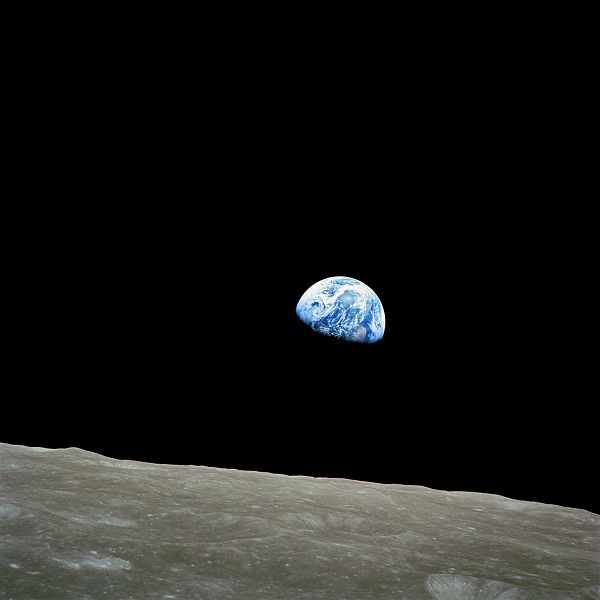
Two more passages extracted from Gerald Schroeder’s 2009 book God According to God: A Scientist Discovers We’ve Been Wrong About God All Along:
. . . the one-of-a-kind behavior or water expanding just before reachings its freezing temperature. Almost all other liquids contract upon changing from liquid to solid. That contraction makes them denser than the liquid from which they solidified (froze). As such the solids that form sink within the parent liquid. Because water expands as it freezes from water into ice, the ice is lighter than the water from which it froze. Being lighter, it floats. If it were otherwise, oceans would freeze from the bottom up, a reality that would in time bind most of the water permanently at frozen ocean bottoms. No abundant supply of liquid water means no advanced life. (74-75)
Notwithstanding the late Carl Sagan’s claim in his Cosmos series that our solar system is “ordinary, even mediocre,” and Preston Cloud’s statement in his widely quoted book Oasis in Space that our sun is “an unexceptional main-sequence star,” our placement in the cosmos is anything but pedestrian. So special is our home in the universe that, in what is considered by many to be the most authoritative geology textbook, Earth, written by Frank Press (of the National Academy of Sciences and formerly head of geology at M.I.T.) and Raymond Siever (of Harvard University), the opening section is titled “The Uniqueness of Planet Earth.” That says it all, though Press and Siever expand upon this uniqueness in the following pages. (75)
***
Exceptionally short-lived supernovae are creating a degree of puzzlement among the scientists studying them. “If nothing else,” one of them comments, “our work confirms that astrophysics and cosmology are still sciences with a lot of unanswered questions!”
“Astronomers Just Found 72 Stellar Explosions, But Don’t Know What’s Causing Them”
***
I think that faith and reason are both gifts from God. And if God is real, then faith and reason should complement each other rather than be in conflict. Science is the child of reason. Reason has given us the ability to establish the scientific method to investigate the world around us, and to show that the world and the universe in which we live are far vaster and far more complex, and I think far more wonderful, than anyone could have imagined 1,000 or 2,000 years ago. . . . Does that mean that scientific reason, by taking some of the mystery out of nature, has taken away faith? I don’t think so. I think by revealing a world that is infinitely more complex and infinitely more varied and creative than we had ever believed before, in a way it deepens our faith and our appreciation for the author of that nature, the author of that physical universe. And to people of faith, that author is God. — Kenneth R. Miller, cell biologist and molecular biologist; Professor of Biology and Royce Family Professor for Teaching Excellence, Brown University; practicing Catholic.











